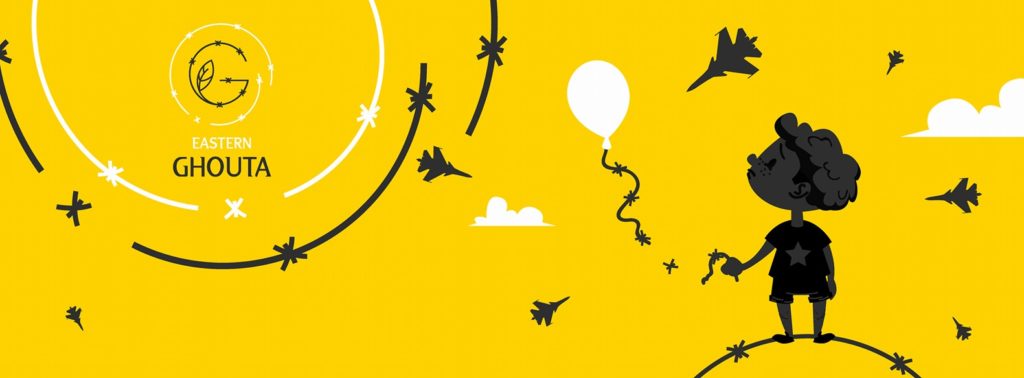Act for Ghouta

In October 2017, a group of Syrian activists launched a campaign to raise awareness of the Assad regime’s devastating siege of eastern Ghouta. One of the group members, Marcelle Shehwaro, had been engaged in similar efforts to raise awareness of the situation in Aleppo, but after it fell, she noticed people’s energy had similarly declined.
We created a voice that spoke with resistance, humour, and personal experience
Marcelle Shehwaro,
Act for Ghouta
Along with her fellow activists, she created a campaign called Act for Ghouta, so titled to familiarise Western audiences with the name “Ghouta”, a place not nearly as well known as Aleppo. The team began telling stories of the people inside Ghouta, sharing them on a Facebook page, a Twitter account, and a standalone website.
“We created a voice that spoke with resistance, humour, and personal experience,” Shehwaro says. She believes the campaign’s biggest impact was that it showed the whole picture of life in Ghouta, which Western media often simplified. “We are beyond victims, we are beyond heroes,” she says. “The siege was not just about the lack of food, it was students being unable to study, books had to be smuggled in, it wasn’t just basic needs that weren’t being fulfilled.”
The campaign team, all of whom except Shehwaro were in Ghouta, translated people’s testimonies and published photos of their artwork. They created infographics in 13 different languages for people in the Syrian diaspora to share and post stories, photos, and videos about the situation in Ghouta. They also leaked a UN phone number and urged people to call it to demand action on Ghouta.
The campaign’s stories were published on the Global Voices website and published by the Syrian platform Al Jumhuriya while Pax for Peace published a blog post by Ammar, the campaign’s graphic designer. Shehwaro gave a podcast interview to the Century Foundation and Al-Monitor and Equal Times covered the campaign. For Shehwaro though, Act for Ghouta’s biggest success was in allowing Syrians to tell their own story and presenting them as complete individuals who were so much more than the siege.
At least Ghouta didn’t fall silently
MARCELLE SHEHWARO, ACT FOR GHOUTA
“It meant something to the people under fire that their stories were out there,” Shehwaro says. “At least Ghouta didn’t fall silently.”